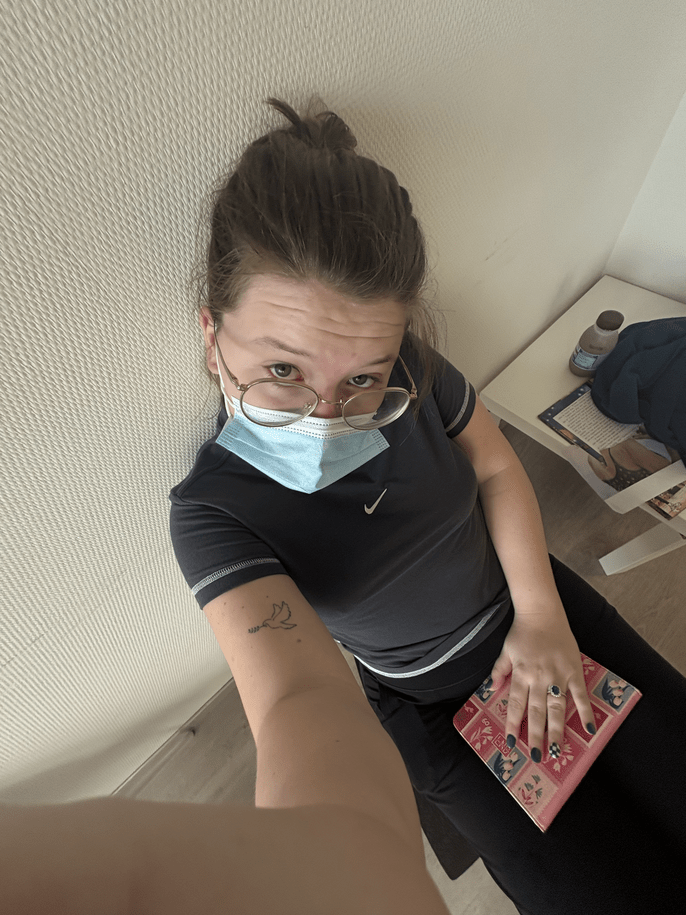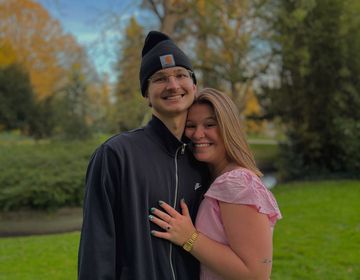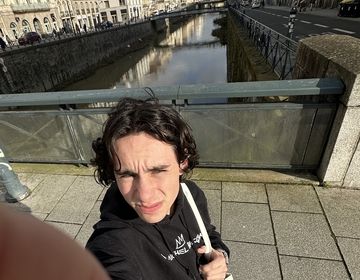Sick in France : an opportunity to reflect on the healthcare system
Getting sick while studying abroad is never part of the plan, but it became an unexpected learning experience for me in France. While it was stressful in the moment, it also gave me a firsthand look at the differences between the American and French healthcare systems, and it made me appreciate the incredible support of my study abroad program.
My symptoms started on a Wednesday—just a sore throat and mild discomfort. By Friday, however, I was running a fever, and since I had a weekend trip to Paris planned, I decided to book an online video appointment to get some quick medical advice. Unfortunately, the video appointment was a waste of time; it was too impersonal, and the doctor didn’t provide much guidance beyond rest and over-the-counter medication. If you’re ever in this situation in France, I wouldn’t recommend taking the online route.
One thing that stands out in France is how accessible pharmacies are. You can spot them easily because they all have bright green crosses outside. Pharmacists in France are much more involved in healthcare than in the U.S.; they can assess your symptoms and recommend treatments without the need for a doctor’s visit. I stocked up on paracetamol (the equivalent of Tylenol) and hoped for the best.
The weekend was rough. My fever wouldn’t break without medication, and by Sunday, I knew I couldn’t attend class the next day. Desperate, I emailed my study abroad program asking for help finding a doctor. The response was immediate and incredibly supportive. They assessed my symptoms, provided guidance, scheduled a doctor’s appointment for me as soon as possible, and even offered to accompany me—though I declined at that point.
Monday came, and I went to the doctor alone. This turned out to be one of the hardest parts of the experience. Between the language barrier and cultural differences in medical care, I felt completely overwhelmed. The doctor told me that it was normal to have a fever for up to eight days and that I should return on Wednesday if I wasn’t better. I was so frustrated that I broke down crying right in the office. It was a moment of complete vulnerability, and I really wished I had taken my program’s offer to accompany me.
My program continued checking in on me, and when I hadn’t improved by Tuesday, they made another appointment for Wednesday and insisted on coming with me. That afternoon, I went to a pharmacy to request a strep test, offering to pay out of pocket. The pharmacist refused, saying my congestion made strep unlikely. Later, I found out that this was highly unusual and, in my opinion, might have had more to do with the fact that it was right before her lunch break.
On Wednesday, my program representative met me at the doctor’s office. We waited two hours for my appointment, but having someone to talk to made all the difference. It meant a lot to me that she was willing to wait with me for that whole time, especially considering that we didn’t leave the doctor until later in the evening. She accompanied me to translate, which was incredibly helpful—even though I understood everything the doctor said, the fact that she could articulate my needs made all the difference. I definitely wouldn’t have been able to express everything properly in French. The doctor was still reluctant to prescribe antibiotics, but because my fiancé (who had just visited) tested positive for strep back home, she finally agreed to order a strep test and write a prescription in case the results came back positive.
Through all of this, my professors were incredibly understanding. Instead of pressuring me to come to class, they encouraged me to rest and recover—something that’s not as common in the U.S., where students are often expected to power through sickness. My program also spoke to me in English while I was sick, which was such a relief because my French has been nonexistent while sick. I honestly don’t know how I would have navigated all of this in a second language, and I continue to feel blessed and appreciative of the fact that I take things like communication in a doctor’s office for granted. There are so many people who don’t have that luxury, and I am studying foreign language to do my part to offer others the comfort of communication.
Reflecting on this experience, I can see the key differences between healthcare in the U.S. and France. In the U.S., I would have gotten quicker service but at a much higher cost. In France, I had to wait longer, return for follow-ups, and deal with a more conservative approach to medication, but each doctor’s visit only cost me 30 euros. While frustrating at times, it was also eye-opening to see a different approach to healthcare.
The biggest takeaway? If you get sick while studying abroad, lean on your program. Their support made an incredibly difficult situation much more manageable, and I’m so grateful for their help every step of the way. Also, I’ve discovered that chocolate milk is an excellent excuse for self-care. I still haven’t been to the pharmacy to get the strep test yet, so I’m hoping for the best, but at least I’m feeling somewhat better and can at least appreciate and reflect upon the differences between cultures, which is exactly why I decided to study abroad.
Ryann Dykstra
Hope College
CIEE-Rennes LA Spring 2025
Related Posts
Hosting Loved Ones in France
When my mom came during our winter break, we traveled together to Paris, Annecy, and Nice. It was a week full of slow mornings, long afternoons at coffee shops, and... keep reading
Première rencontre avec une personne inconnue à Rennes / My first interaction with a stranger in Rennes
«T’as pas froid ?» dit une voix venant de ma droite. «…» le temps de comprendre que quelqu’un me parle. «Me–euh moi ? Non, il fait pas trop mauvais pour... keep reading
Ajustement Culturel : L’Importance De Saisir Une Autre Culture
I prefer to use the term “adjustment” rather than “shock” when it comes to integrating yourself into a new culture. “Adjustment” comes with a more positive connotation that implies that... keep reading




